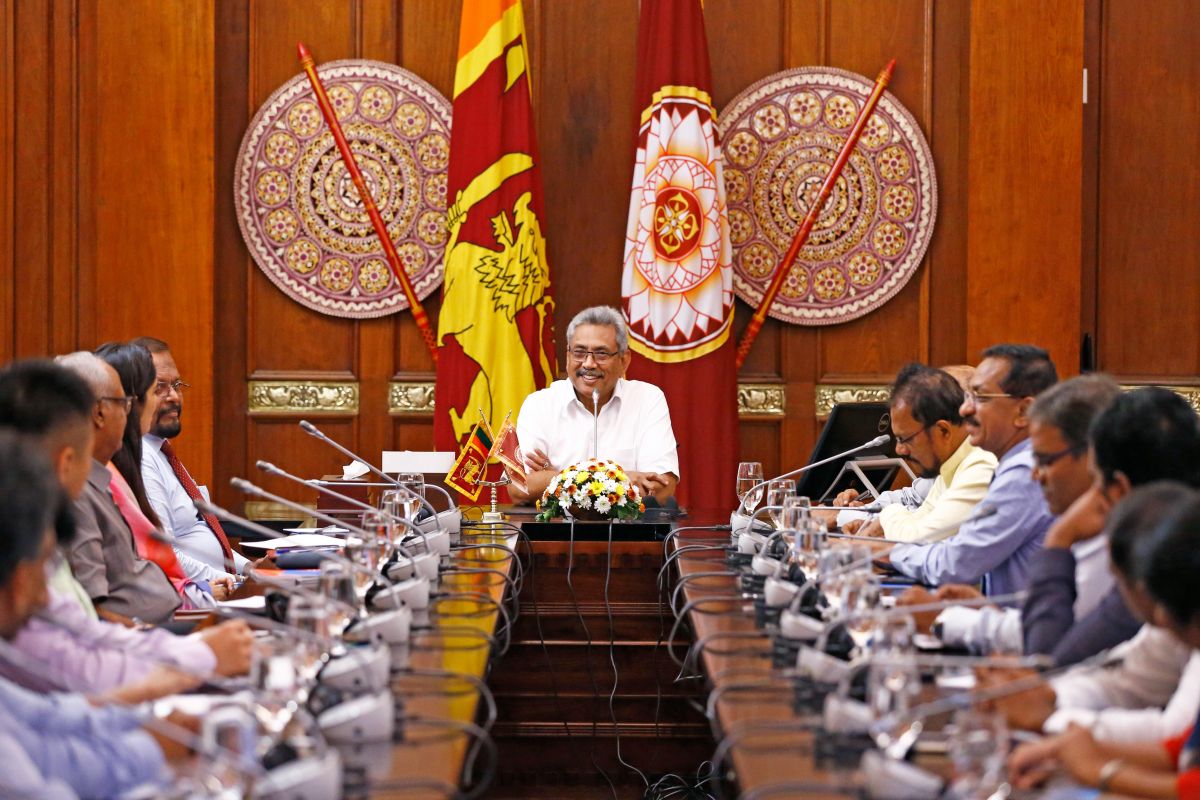Amid the ongoing economic crisis, Sri Lanka is seeking the help of the International Monetary Fund (IMF) to restructure its unsustainable debt with Finance Minister Basil Rajapaksa’s visiting Washington next month.
President Gotabaya Rajapaksa in a national address on Wednesday said that he had given the go-ahead for an IMF program after meeting senior staff of the lender in Colombo, The Island reported.
Advertisement
“The (Sri Lankan) authorities have also indicated that they are actively considering an IMF-supported program,” IMF spokesman Gerry Rice said on Friday, adding that, “We will discuss with the authorities how best we can assist Sri Lanka going forward, including during the Minister of Finance’s visit in Washington in April.”
The IMF has analyzed Sri Lanka’s economy in a staff report which has been submitted to the money lending agency’s board.
The full report has not been made public, but key conclusions, including that the debt is unsustainable are now known.
The report also warned that the Sri Lankan economy could implode unless actions were taken to halt monetary instability.
Recently, Sri Lanka has seen its national currency getting devalued significantly against major international currencies, in addition to crippling fuel and gas shortages and daily electricity cuts, with the currency fetching an exchange rate of around SLR 270-290 against a dollar on Friday.
An IMF program typically involves a tight reserve money program to stop inflation and block the validation of domestic prices as the currency weakens, The Island further said.
Tax hikes and spending cuts will reduce the budget deficit and domestic credit, keeping down the corrective interest rate. Sri Lanka’s private citizens are net savers and are incapable of triggering currency pressure.
A foreign reserve target is also given and reserves for imports are generally discouraged (sometimes a so-called disorderly market conditions intervention is allowed which however can undermine the currency unless they are unsterilized).
Debt restructuring will also reduce the corrective interest rate and the need to immediately deploy more savings for debt repayment and leave space for a reasonable growth path.
India provided more than USD 500 million in foreign currency swaps to strengthen Sri Lanka’s foreign reserves, taking the total up to USD 900 million. India also extended the repayment time frame for the USD 500 million debt of Sri Lanka under the Asian Clearance Arbitration.
Most recently on Thursday, Sri Lanka signed a USD 1 billion credit line with India for procurement of food, medicines, and other essential items during Sri Lankan Finance Minister Basil Rajapaksha’s two-day visit to India.









